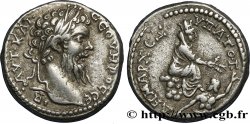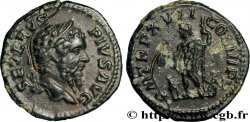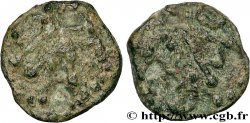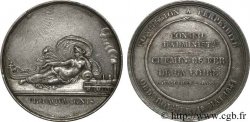v21_2725 - SEPTIMIUS SEVERUS Sesterce, (GB, Æ 29)
MONNAIES 21 (2004)
Starting price : 550.00 €
Estimate : 1 500.00 €
unsold lot
Starting price : 550.00 €
Estimate : 1 500.00 €
unsold lot
Type : Sesterce, (GB, Æ 29)
Date: 210
Mint name / Town : Roma
Metal : copper
Diameter : 29 mm
Orientation dies : 1 h.
Weight : 23,72 g.
Rarity : UNIQUE
Coments on the condition:
Flan très large. Patine vert foncé.
Obverse
Obverse legend : L SEPT SEVERVS - PIVS AVG.
Obverse description : Tête laurée de Septime Sévère à droite (O*).
Obverse translation : "Lucius Septimus Severus Pius Augustus", (Lucius Septime Sévère pieux auguste).
Reverse
Reverse legend : SALVS - PVBLICA/ S|C.
Reverse description : Salus (la Santé) drapée assise à gauche, tenant une patère de la main droite et le coude gauche appuyé sur son siège.
Reverse translation : “Salus Publica”, (La Santé publique).
Commentary
Semble complètement inédit et non répertorié. Manque à tous les ouvrages consultés. De la plus grande rareté.








 Report a mistake
Report a mistake Print the page
Print the page Share my selection
Share my selection Ask a question
Ask a question Consign / sell
Consign / sell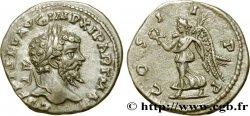
 Full data
Full data


